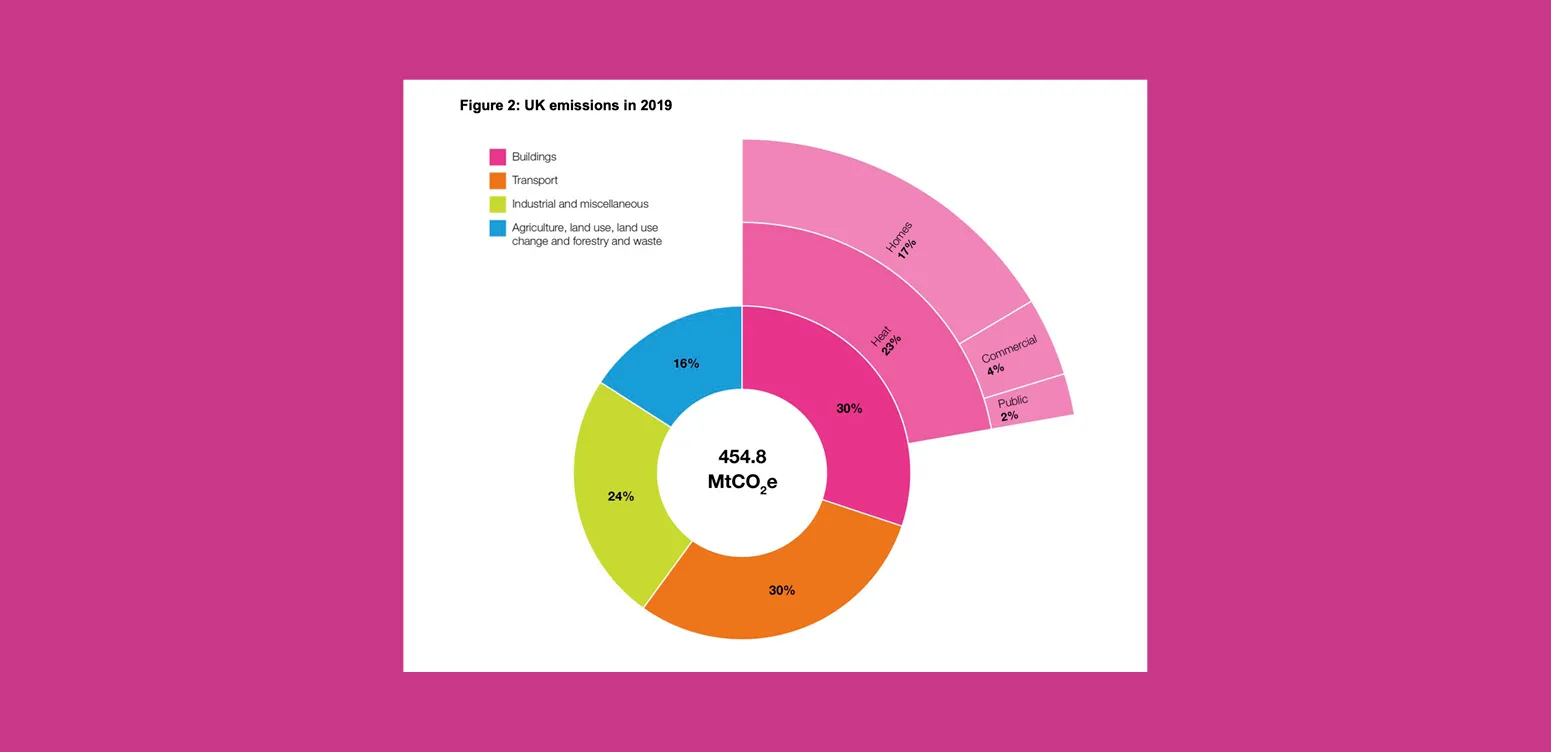UK Government publishes Heat and Buildings Strategy
Cassandra Dove, SFHA Research and Policy Lead, looks at the UK Government’s recently released Heat and Buildings Strategy and how it compares to what’s already been announced in Scotland.
Cassandra Dove, SFHA Research and Policy Lead, looks at the UK Government’s recently released Heat and Buildings Strategy and how it compares to what’s already been announced in Scotland.

The UK Government has now published its long-awaited Heat and Buildings Strategy which outlines plans to decarbonise homes, and other commercial, industrial and public sector buildings, as part of the legally binding target of achieving net zero by 2050.
A total of £3.9 billion is to be invested over the next three years, including various incentives for homeowners in England to retrofit their homes and install low-carbon heating systems. The strategy also confirms that most homes will need to meet an EPC energy efficiency rating of band C by 2035. The Scottish Government has already set more ambitious targets, with most homes required to achieve a band C by 2030 and all homes in Scotland to meet this standard by 2033.
The UK Government has also announced that, in England, gas boilers will be phased out from 2035, with an earlier date of 2026 for off-gas properties. By comparison, for owner occupiers and the private rented sector in Scotland, new and replacement fossil fuel boilers are to be phased out from 2025 in off-gas areas and from 2030, where properties are connected to the gas network.
While the Energy Efficiency Standard for Social Housing Two (EESSH2) is already in place for social landlords in Scotland, the UK Government is now considering setting a long-term regulatory standard to improve social housing in England to EPC band C. This would, however, be subject to further consultation with the sector. Social landlords in England will also be eligible for the Social Housing Decarbonisation Fund which will offer £800 million over the next three years. However, recent research by the National Housing Federation suggests that decarbonising the existing housing association stock in England will cost at least £36 billion.
More broadly, the government is aiming for heat pumps to be no more expensive than gas by 2030 and has committed to a £60 million ‘Heat Pump Ready’ Programme which will support innovation and help improve consumer experience. A further Fairness and Affordability Call for Evidence on options to reform energy levies and obligations is to be launched shortly, while strategic decisions on the role of hydrogen in heating buildings are expected by 2026.
We will be producing a further briefing on both the Scottish Government’s Heat in Buildings Strategy, which was published earlier this month, and the UK Government’s recent announcements, outlining what this means for SFHA members.